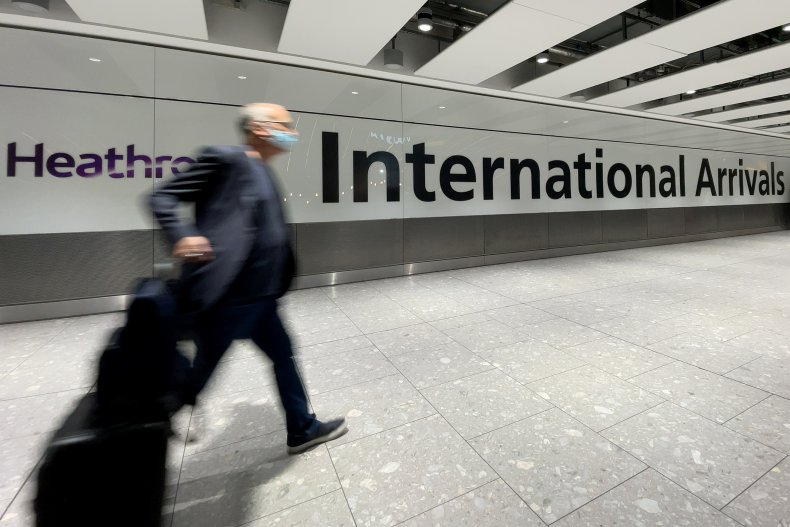The Omicron variant of COVID-19 has spurred a number of countries to place restrictions on travelers from southern Africa as the race is on to develop a vaccine for the new form of the disease.
The World Health Organization (WHO) deemed the variant as one of “concern” although President Joe Biden‘s chief medical adviser, Dr. Anthony Fauci, said there was “no indication” the new coronavirus variant had reached the U.S. as yet.
However, the Biden administration announced that from Monday, it would restrict travel from countries in southern Africa.
The restrictions apply to non-American citizens traveling from South Africa, Botswana, Zimbabwe, Namibia, Lesotho, Eswatini, Mozambique and Malawi.
An unnamed official told The Washington Post the restrictions were out of “an abundance of caution.”
Meanwhile, Canada is barring all foreign nationals who have traveled through the same countries, minus Malawi, within the previous two weeks.

Leon Neal/Getty
On Saturday, Australia announced bans on flights from South Africa, Namibia, Zimbabwe, Botswana, Lesotho, Eswatini, the Seychelles, Malawi, and Mozambique for the next two weeks. Non-Australian citizens who have been in those countries in the last fortnight are now banned from entering.
The first European case of the variant, known as B.1.1.529, was identified in Belgium from someone who had been in Egypt and Turkey, rather than southern Africa.
European Union members have agreed to restrict travel from Botswana, Eswatini, Lesotho, Mozambique, Namibia, South Africa and Zimbabwe, European Commission spokesperson Eric Mamer tweeted.
Flights to the U.K. from the same countries, minus Mozambique, were temporarily suspended on Friday.
Elsewhere, Iran will ban travelers from six southern African countries, including South Africa while Japan said those coming from most of that region would need to quarantine for 10 days and be tested four times during that time.
From Monday, Sri Lanka will ban travelers from South Africa, Botswana, Zimbabwe, Namibia, Lesotho and Eswatini, a statement from the director-general of health services said, according to the Deccan Herald.
Starting from December, Thailand will not allow entry to those traveling from eight African countries it designated as high-risk for the new Covid-19 variant, a senior health official said, cited by Reuters.
Vaccine makers confident
Although experts are concerned about the mutations of the new strain and the risks it poses of reinfection, vaccine manufacturers are confident they can adapt their jabs if the Omicron variant spreads.
Pfizer and BioNTech said they expect to be able to ship a new vaccine to tackle the emerging variant in around 100 days. BioNTech said in a statement it had “immediately initiated investigations on variant B.1.1.529,” the other name for Omicron, Reuters reported.
“We expect more data from the laboratory tests in two weeks at the latest,” it said.
Research would inform them whether the new strain “could be an escape variant that may require an adjustment of our vaccine if the variant spreads globally.”
Moderna said it had a “comprehensive strategy to anticipate new variants of concern” which included three levels of response if the immunity offered by its jabs wanes.
Meanwhile, Professor Sir Andrew Pollard, the director of the Oxford Vaccine Group, which developed the AstraZeneca vaccine, was cautiously optimistic that existing vaccines could be effective against the Omicron variant.
“It is extremely unlikely that a reboot of a pandemic in a vaccinated population like we saw last year is going to happen,” he told BBC Radio 4.


Comments